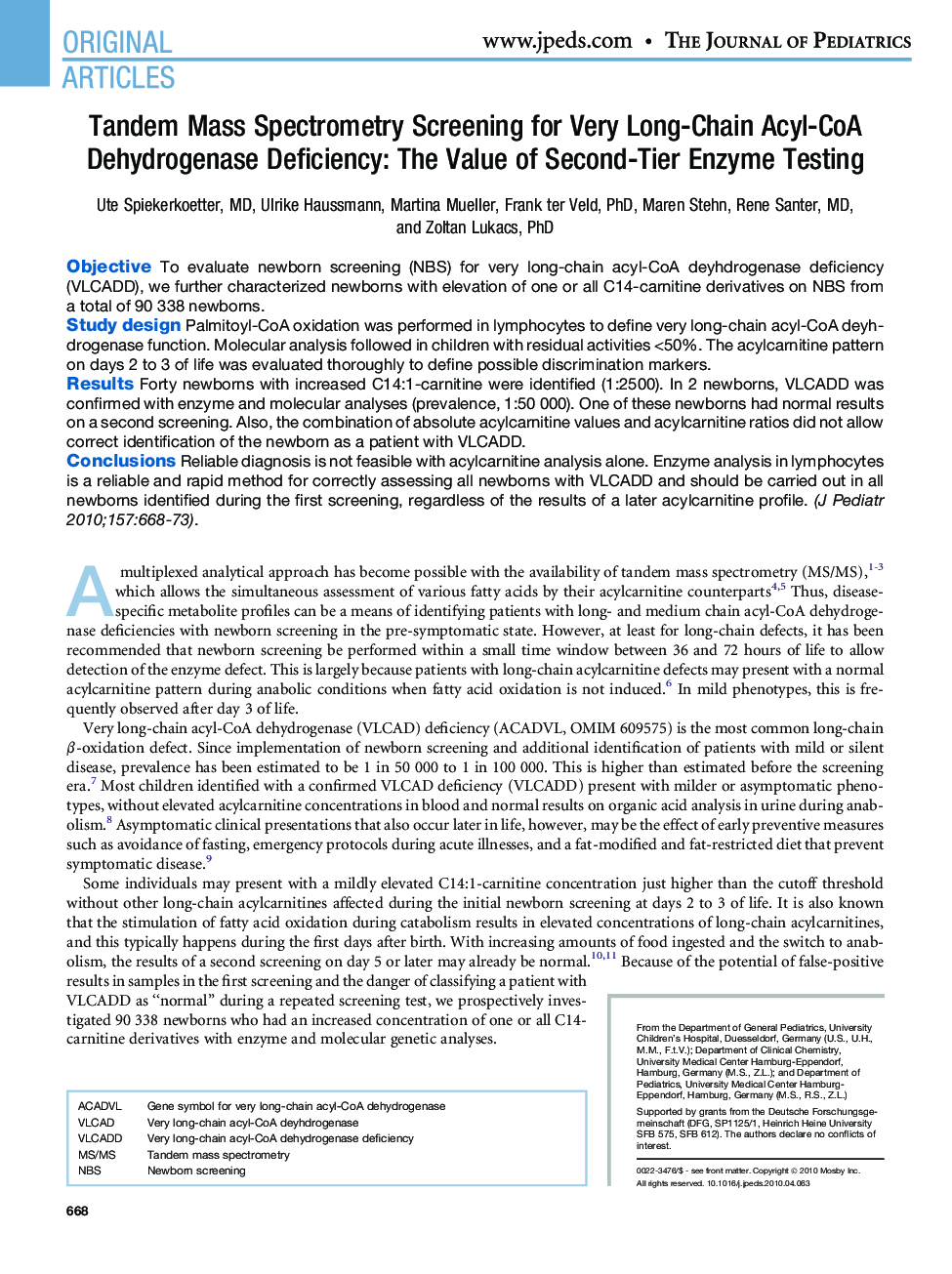| Article ID | Journal | Published Year | Pages | File Type |
|---|---|---|---|---|
| 4167651 | The Journal of Pediatrics | 2010 | 6 Pages |
ObjectiveTo evaluate newborn screening (NBS) for very long-chain acyl-CoA deyhdrogenase deficiency (VLCADD), we further characterized newborns with elevation of one or all C14-carnitine derivatives on NBS from a total of 90 338 newborns.Study designPalmitoyl-CoA oxidation was performed in lymphocytes to define very long-chain acyl-CoA deyhdrogenase function. Molecular analysis followed in children with residual activities <50%. The acylcarnitine pattern on days 2 to 3 of life was evaluated thoroughly to define possible discrimination markers.ResultsForty newborns with increased C14:1-carnitine were identified (1:2500). In 2 newborns, VLCADD was confirmed with enzyme and molecular analyses (prevalence, 1:50 000). One of these newborns had normal results on a second screening. Also, the combination of absolute acylcarnitine values and acylcarnitine ratios did not allow correct identification of the newborn as a patient with VLCADD.ConclusionsReliable diagnosis is not feasible with acylcarnitine analysis alone. Enzyme analysis in lymphocytes is a reliable and rapid method for correctly assessing all newborns with VLCADD and should be carried out in all newborns identified during the first screening, regardless of the results of a later acylcarnitine profile.
